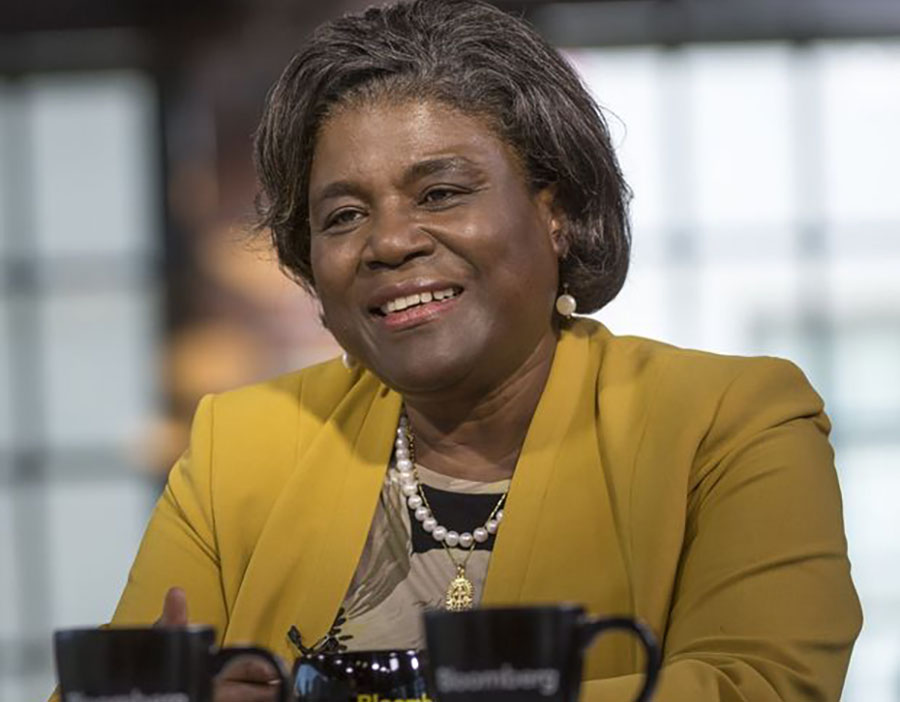NEW YORK, United States – Joe Biden has picked Antony Blinken as United States secretary of state, elevating one of his most seasoned and trusted aides as he prepares to undo President Donald Trump’s foreign policy.
Blinken is a longtime Biden confidant who served as No. 2 at the State Department and as deputy national security adviser in President Barack Obama’s administration, in which Biden served as vice president.
The announcement was made on Monday.
Blinken’s appointment makes another longtime Biden aide with a foreign policy background, Jake Sullivan, the top candidate to be U.S. national security adviser.
While neither are household names, Blinken and Sullivan have helped Biden formulate a strategy that will include immediate outreach to U.S. allies who have often been antagonised by Trump’s “America First” approach, and to demonstrate a willingness to work together on major global problems like the coronavirus epidemic and its economic fallout.
Biden has vowed to rejoin a nuclear deal with Iran if the country returns to compliance, return to the Paris climate accord, abandon plans to leave the World Health Organisation and end a U.S. rule that bans funding of aid groups that discuss abortion. Each move would reverse Trump’s policies and some could take place quickly after Biden takes office on January 20.
Biden’s transition also named 68-year-old Linda Thomas-Greenfield as U.S. ambassador to the United Nations. Thomas-Greenfield, who is black, served as the Assistant Secretary of State for African Affairs in the United States Department of State’s Bureau of African Affairs from 2013 to 2017. She was previously the U.S. ambassador to Liberia.
In appointing Thomas-Greenfield, Biden also announced that he was elevating the of U.N. ambassador to Cabinet level. It could bring an effort to deepen engagement across Africa, where China has made inroads with technology and infrastructure investments.
In 2019, she co-authored a paper with the former U.S. ambassador to Zimbabwe in which they said early “public support for Mnangagwa and hope for reform” following a 2017 military coup “is being trampled out of existence by the brutal actions of security forces.”
“While the Mnangagwa government’s talking points on fundamental issues such as rule of law, debt, and international cooperation are more rational, measurable reform is elusive,” they wrote. “Shona-speaking political, business, and military elite continue to call the shots and live in luxury while the middle class emigrates and the poor suffer on.”
Blinken, 58, has long touted the view that the United States needs to take an active leadership role in the world, engaging with allies, or see that role filled by countries like China with contrary interests.
“As much of a burden as it sometimes seems to play … the alternative in terms of our interests and the lives of Americans are much worse,” he said in an interview with Reuters in October.
When asked if relations with the United States might improve with Blinken replacing Mike Pompeo, Chinese Foreign Ministry spokesman Zhao Lijian sidestepped the question by saying he does not comment on U.S. domestic affairs.
He reiterated that China was willing to improve communication, strengthen cooperation and manage differences with the United States.

People familiar with his management style describe Blinken as a “diplomat’s diplomat,” deliberative and relatively soft-spoken, but well-versed in the nuts and bolts of foreign policy. Some describe Blinken as a centrist with a streak of interventionism, has also sought to lessen refugee crises and migration.
Officials and friends say that Blinken’s lessons learned while working on Bosnia in the Bill Clinton administration and myriad other national security matters play a significant role in informing his views on current issues.
Blinken surprised some in the Situation Room when he supported military action in Libya, and he advocated for American action in Syria after Obama’s reelection. While he is not much of an ideologue, he believes global powers such as the United States have a “responsibility to protect” against atrocities.
After Democratic presidential nominee Hillary Clinton lost the 2016 election to Trump, Blinken became one of the founders of WestExec Advisors, a Washington consultancy advising corporations on geopolitical risks.
Having practiced law briefly, he entered politics in the late 1980s helping Democrat Michael Dukakis’ presidential campaign raise money.
He joined Democratic President Bill Clinton’s White House as a speechwriter and became one of his national security aides.
Under Obama, Blinken worked to limit most U.S. combat deployments to small numbers of troops. But he told Reuters last year that Trump had “gutted American credibility” with his pullback of U.S. troops in Syria in 2019 that left Kurdish U.S. allies in the lurch in their fight against Islamic State.
On the campaign trail, Blinken was one of Biden’s closest advisers, even on issues that went beyond foreign policy.
That trust is the product of the years Blinken worked alongside Biden as an adviser to his unsuccessful 2008 presidential campaign, as national security adviser early in his vice presidency and as the Democratic staff director of the Senate Foreign Relations Committee when Biden was chair.
Sullivan, formerly a close policy aide to Hillary Clinton, became one of the key policy advisers to Biden. He served as the former vice president’s national security adviser during the Obama administration.
A 43-year-old graduate of Yale, who was also a Rhodes scholar at Oxford and has a reputation as a behind-the-scenes operator, Sullivan took part in secret back channel talks with Iran that led to a 2015 international nuclear deal that Trump subsequently overturned.
He took on a broad portfolio on foreign and domestic policy, including the campaign’s views on the public health and economic response to the coronavirus pandemic, and was quickly chosen to stay on with Biden through the transition. – Reuters















